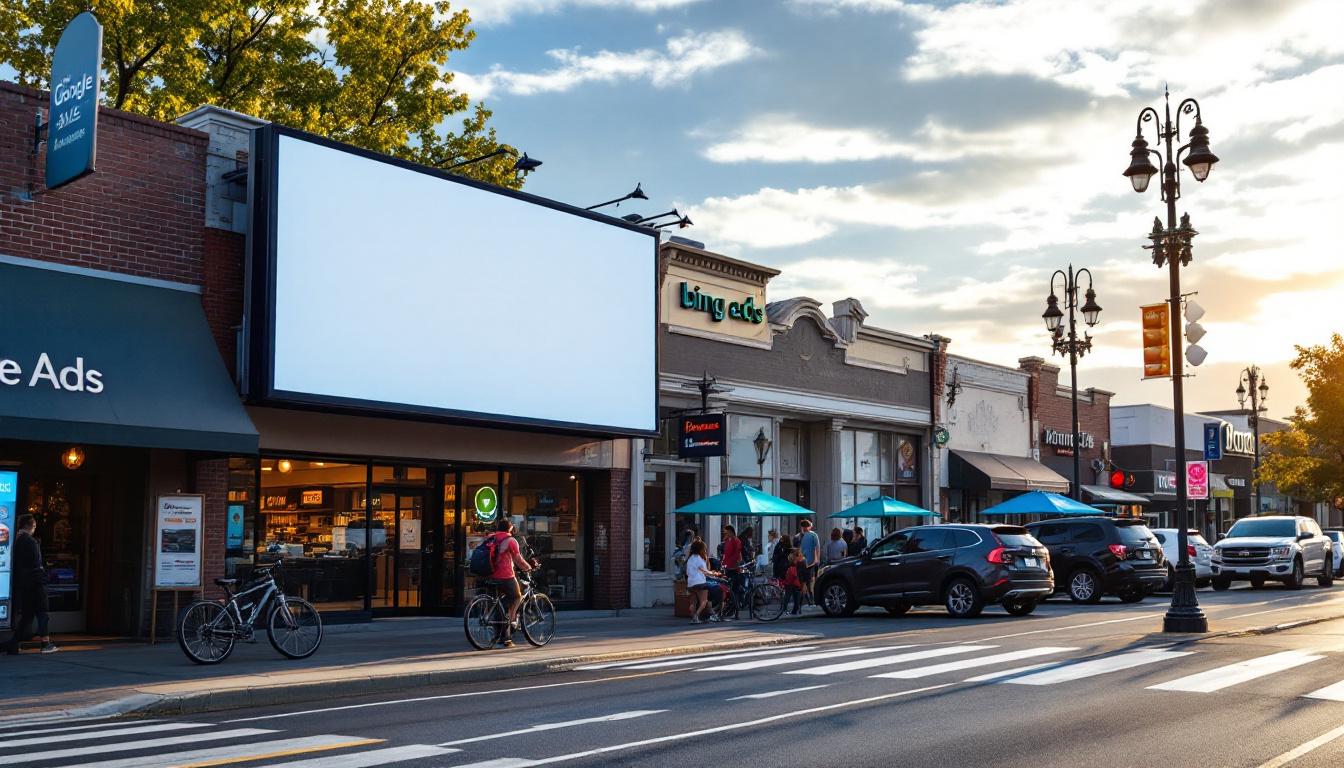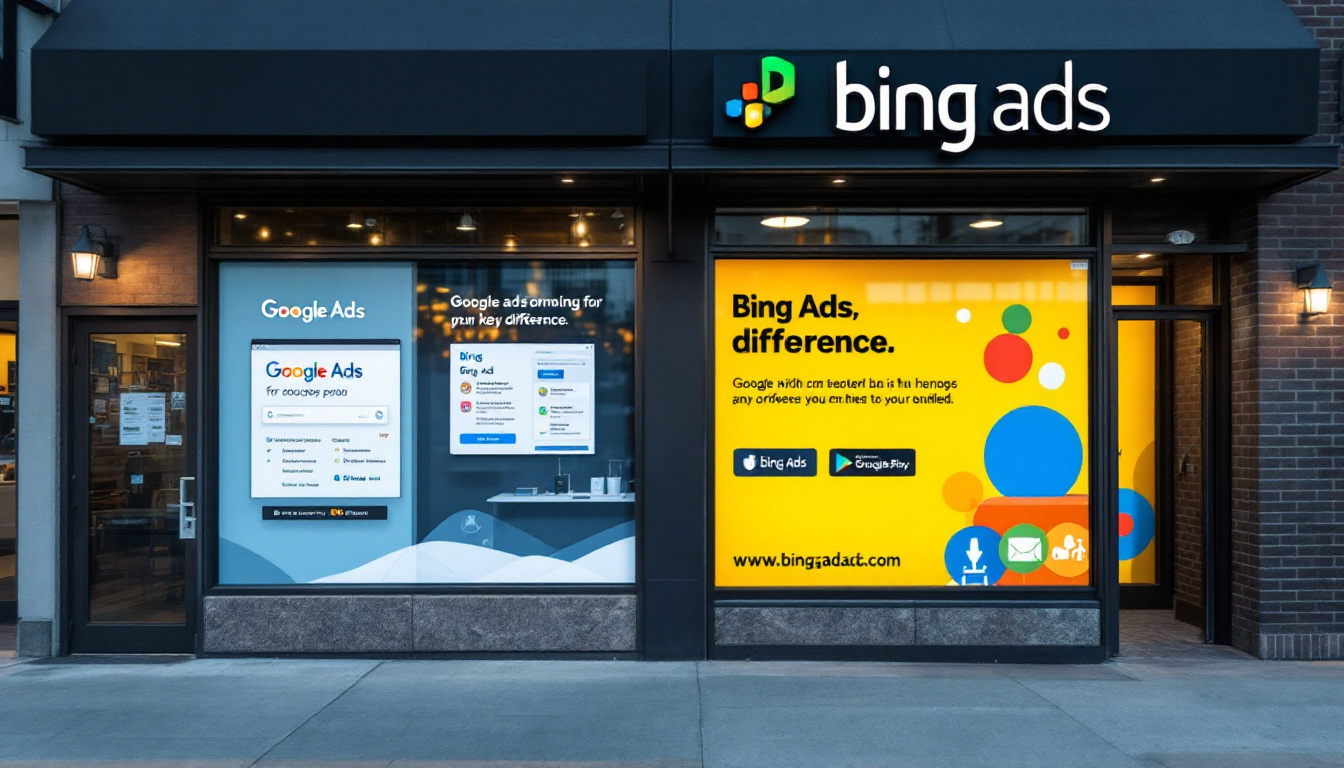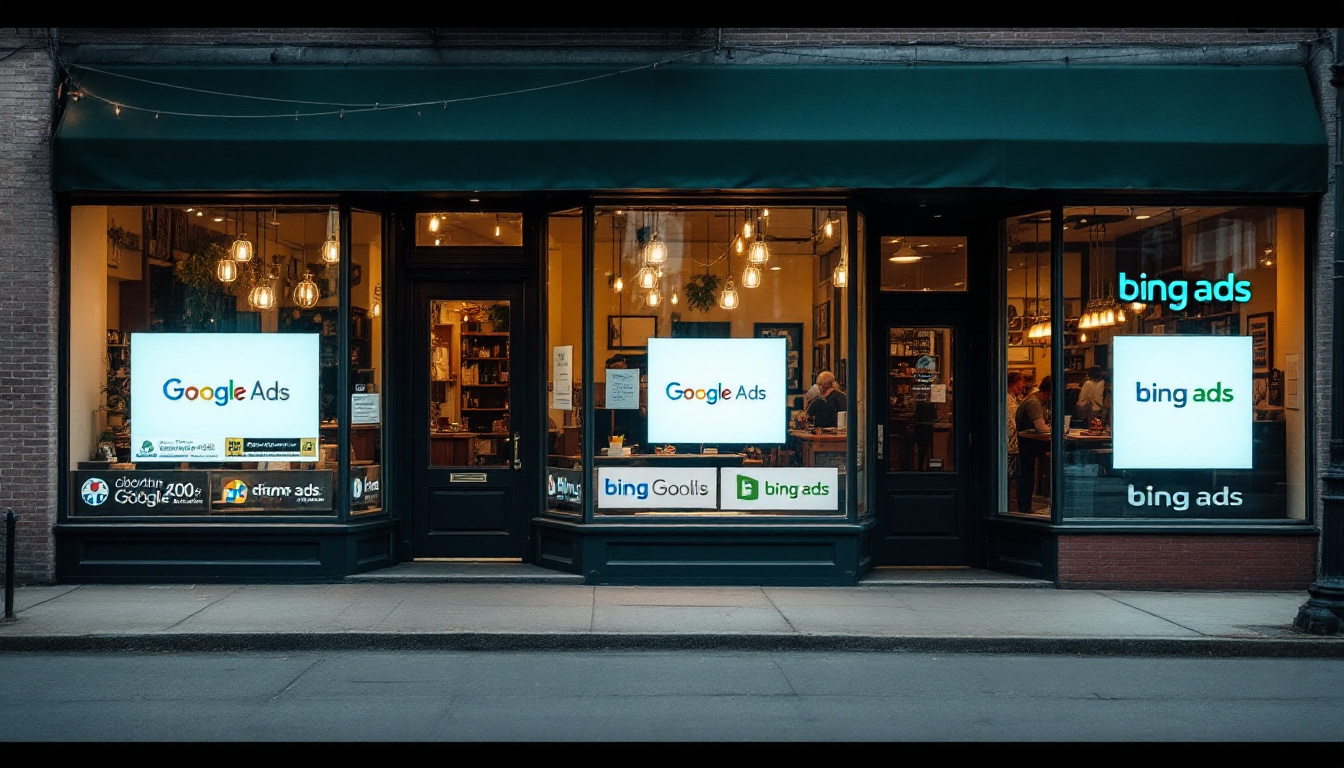Google Ads vs. Bing Ads for Spokane, WA Businesses: Which is Better?

As businesses in Spokane, WA explore their online advertising options, they often find themselves debating between two major players: Google Ads and Bing Ads. Each platform has its unique features, advantages, and audience demographics, making it crucial for business owners to understand which platform aligns best with their marketing strategies. In this article, we'll delve into the key differences between Google Ads and Bing Ads, examine audience demographics, analyze cost comparisons, and provide insights on choosing the right platform for your business.
Key differences between Google Ads and Bing Ads
Google Ads and Bing Ads may serve the same purpose—helping businesses reach their target audience through paid search—but there are several differences that set them apart.

- Market Share: Google Ads commands a significant portion of the search engine market, capturing over 90% of online search queries. In contrast, Bing Ads holds about 6-8% of the market. This difference in market share can impact the visibility of your ads.
- Ad Formats: Google Ads offers a wider variety of ad formats, including display ads, shopping ads, and video ads. Bing Ads, while versatile, tends to focus more on traditional text ads and has fewer options for visual ad formats.
- Targeting Options: Google Ads provides extensive targeting capabilities, such as keyword targeting, demographic targeting, and remarketing. Bing Ads also offers targeting options, but it may not be as comprehensive as Google's platform.
Another notable difference lies in the user interface and ease of use. Many advertisers find Google Ads to have a more intuitive interface, providing easier navigation and management of campaigns. Bing Ads has made strides to improve usability, but the experience may vary for different users.
Ad Policies and Approval Processes
When it comes to ad approval processes, Google Ads tends to have stricter ad policies compared to Bing Ads. This means that Google might reject ads that are borderline acceptable on Bing. Consequently, businesses may find that their campaigns are operational on Bing, but not on Google, or vice versa. Understanding these nuances can help businesses formulate better strategies when developing their ad campaigns.
Additionally, the differences in ad policies can also influence the type of content that advertisers choose to promote. For instance, certain industries, such as pharmaceuticals or adult content, may face more stringent regulations on Google Ads, leading advertisers to consider Bing as a viable alternative. This flexibility can sometimes allow for more creative freedom in ad campaigns, although it is essential to remain compliant with each platform's specific guidelines.
Moreover, the demographic profiles of users on each platform can also play a crucial role in determining where to allocate advertising budgets. Google Ads users tend to be more diverse in terms of age and interests, while Bing Ads has a higher concentration of users who are older and may have higher disposable incomes. This demographic insight can help businesses tailor their messaging and optimize their ad spend according to the audience they wish to reach.
Audience demographics for each platform in Spokane, WA
Understanding your target audience is paramount when selecting an advertising platform. In Spokane, WA, the demographics of users on Google and Bing can differ substantially.
- Google Ads: The platform is widely used by a diverse age group, particularly younger individuals aged 18-34. Google is popular among millennials and tech-savvy users aiming to conduct research or make quick purchases. Businesses targeting a younger demographic may find Google Ads more effective.
- Bing Ads: Conversely, Bing tends to attract older users, particularly those aged 35 and above. This demographic often includes professionals and higher-income individuals who might be using their work computers to conduct searches. If your business caters to this audience, Bing Ads might offer a strategic advantage.
Both platforms allow advertisers to refine their audience segments through behavioral and geographic targeting. As a Spokane-based business, leveraging local targeting on either platform can enhance your marketing efforts by ensuring your ads reach the right users.
Beyond Demographics
Additionally, it’s crucial to consider factors like device usage. Google Ads has a higher percentage of mobile traffic, while Bing users often prefer desktop searches. This insight can significantly influence how businesses tailor their ad content and format. For instance, mobile users may respond better to visually engaging ads with quick calls to action, while desktop users might appreciate more detailed information that can be easily read on a larger screen.
Furthermore, the time of day and user intent also play vital roles in advertising strategies. Google Ads often sees peak activity during lunch hours and evenings when younger audiences are more likely to be browsing on their mobile devices. In contrast, Bing users may engage more frequently during traditional work hours, reflecting their professional backgrounds. Understanding these patterns can help businesses optimize their ad scheduling, ensuring that their campaigns are running at the most effective times for each platform's audience.
Cost comparison: CPC and ROI
Cost is often a decisive factor for businesses when selecting between Google Ads and Bing Ads. The cost-per-click (CPC) is typically higher on Google due to its larger audience and higher competition for ad placements.
- CPC Rates: While CPC rates can vary dramatically based on industry and keyword competition, businesses in Spokane may find Bing Ads more cost-effective. Typically, Bing Ads offer lower CPC, allowing businesses to stretch their marketing budget further. This can be particularly advantageous for small to medium-sized enterprises that may not have the same financial resources as larger corporations. Moreover, the lower competition on Bing often results in a more favorable ad position for businesses willing to invest in this platform.
- Return on Investment (ROI): Lower CPC doesn’t necessarily equate to a better ROI. Google often provides a higher conversion rate due to its extensive reach. Measuring ROI on both platforms involves examining conversion tracking, lead generation, and customer lifetime value. Businesses should also consider the quality of leads generated from each platform; a higher CPC on Google may yield more qualified leads that convert at a higher rate, thus justifying the initial investment.
To enhance their ROI, Spokane businesses can test both platforms on a small scale. By analyzing performance data, they can identify which platform drives more conversions at a lower cost. Additionally, implementing A/B testing for ad copy and targeting can provide insights into which strategies resonate best with their target audience, allowing for more informed decisions moving forward.
Setting Budgets Wisely
Furthermore, advertisers must consider budget management strategies. Both platforms allow for budget adjustments, but reviewing the pricing trends over months can help in foreseeing seasonal changes in costs and user engagement, leading to more effective ad spending. For instance, during peak shopping seasons, such as the holidays, CPC rates may surge, making it crucial for businesses to allocate their budgets strategically. Utilizing automated bidding strategies offered by both platforms can also aid in maximizing ad spend efficiency, ensuring that businesses get the most value for their investment.
In addition to seasonal trends, businesses should also keep an eye on emerging market trends and shifts in consumer behavior. For example, increased mobile usage has transformed how ads are served and interacted with. By understanding these dynamics, advertisers can adjust their budgets and strategies accordingly, ensuring they remain competitive in an ever-evolving digital landscape. Furthermore, leveraging analytics tools can provide deeper insights into customer preferences, enabling businesses to refine their targeting and improve overall campaign performance.
How to choose the right platform for your business
Choosing the right advertising platform demands a strategic approach that takes into account various factors beyond just CPC and audience demographics.
- Business Goals: Clearly define your advertising goals. Are you looking for brand awareness, lead generation, or product sales? Google Ads may serve better for broader goals, while Bing can effectively support niche targeting.
- Budget Considerations: Assess your marketing budget. If cost-effectiveness is essential, experimenting with Bing Ads initially can provide valuable insights without the higher expenditure typically associated with Google.
- Target Audience Insights: Based on the audience demographics analyzed, select the platform that more closely aligns with your target market. Knowing where your consumers spend their time can significantly enhance ad effectiveness.
It’s often beneficial to run simultaneous campaigns on both platforms to collect data and pinpoint which delivers better results.W
Testing and Optimization
Regularly testing and optimizing your ad campaigns is crucial. Track key performance indicators (KPIs) such as click-through rates (CTR) and conversion rates on both platforms and adjust your strategies accordingly.
Examples of businesses succeeding with both platforms
Numerous Spokane businesses have successfully leveraged both Google Ads and Bing Ads, showcasing the strengths of each platform.

- Local Restaurants: Several restaurants have utilized Google Ads to drive immediate traffic to their menus and promotions, capitalizing on the platform's high mobile traffic.
- Professional Services: Law firms and consultancy services in Spokane have turned to Bing Ads, attracting a more mature audience that is likely to convert and seek assistance.
These examples illustrate that the right advertising platform can vary depending on the business model, target audience, and marketing objectives.
Final Thoughts
Ultimately, whether to choose Google Ads or Bing Ads relies on careful consideration of your business goals, budget, and audience demographics. Spokane businesses can greatly benefit from understanding each platform's capabilities and leveraging them to achieve their marketing objectives. Testing both avenues may be the most effective way to ensure maximum reach and ROI.

As a Google Ads expert, I bring proven expertise in optimizing advertising campaigns to maximize ROI.
I specialize in sharing advanced strategies and targeted tips to refine Google Ads campaign management.
Committed to staying ahead of the latest trends and algorithms, I ensure that my clients receive cutting-edge solutions.
My passion for digital marketing and my ability to interpret data for strategic insights enable me to offer high-level consulting that aims to exceed expectations.